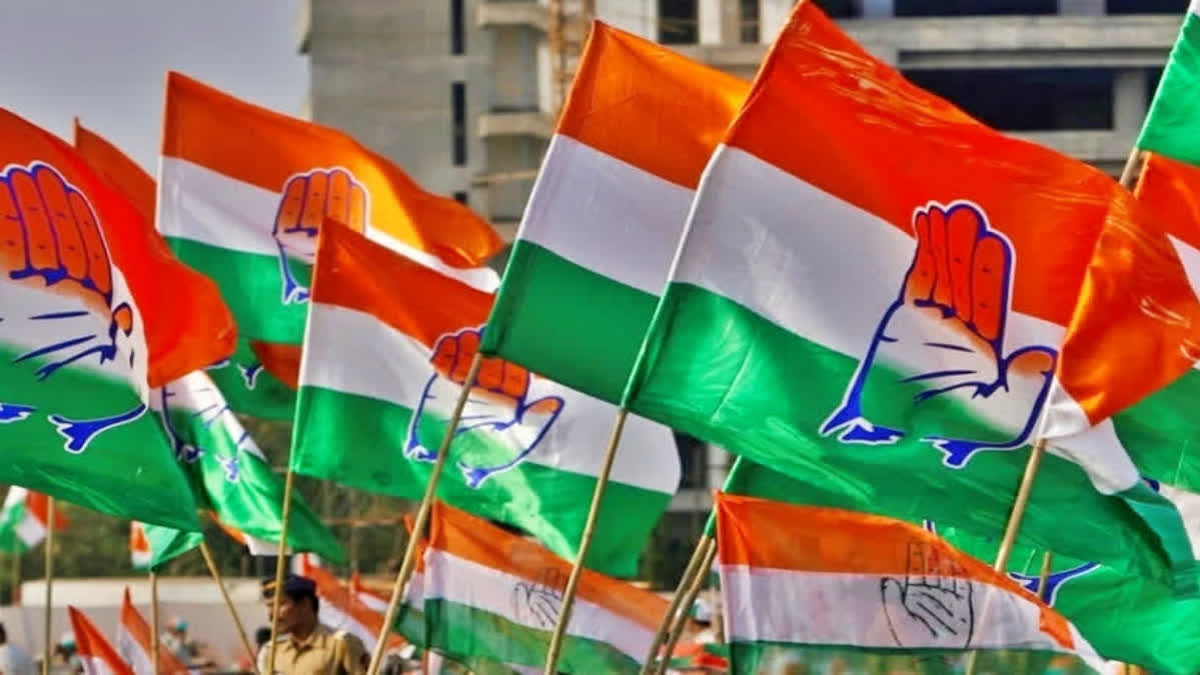New Delhi:The Congress plans to launch a campaign against the Central government’s controversial job scheme Agniveer in the poll-bound states to mobilise public support against the BJP. The Ex-Servicemen Department of the Congress held a conclave to oppose the Agnipath scheme, under which Agniveers are recruited in the Armed Forces for four years, in Gwalior, Madhya Pradesh two months ago, conducted a foot march in Rajasthan’s Alwar last week and will take out two rallies in Jhunjhunu and Mandawa on October 29.
“We are against the Agnipath scheme as it creates two sets of soldiers in the same unit and is damaging for the Armed Forces. We have been opposing the issue nationwide, but are prioritising our events in the poll-bound states. The issue of Agniveer finds resonance in all the poll-going states Rajasthan, Chhattisgarh, Madhya Pradesh, Telangana and Mizoram. As every Indian citizen shares a sense of pride for the Armed Forces, the Agniveer issue will have an impact on the poll outcomes in these states,” Chairman AICC Ex-Servicemen Department Col (Retd) Rohit Chaudhry told ETV Bharat.
“We are demanding an immediate roll-back of the scheme, which has been thrust upon the Armed Forces. During the rallies we are pointing at the differences between a regular soldier and an Agniveer,” he said. According to the AICC functionary, the Congress’ push against the Agnipath scheme sharpened recently after the death of two Agniveers.
Also read:Schemes of BJP-led Centre hollow: Cong leader Priyanka Gandhi Vadra in poll-bound Rajasthan
“See, there is a huge difference in the training of Agniveer and regular soldiers in the Armed Forces. A regular soldier becomes battle-hardened, which means he is ready to be deployed anywhere across the country in around six to eight years. First, he undergoes one and a half years of training and then he gets trained in different aspects of warfare in the unit of his posting for four to six years. In comparison, an Agniveer receives only six months of training, gets one year of leave and is effectively deployed only for two and a half years before retiring,” said Col Chaudhry.
“The Agniveer is not as battle-hardened as a regular soldier. He is not trained to be deployed in tough and harsh conditions. Both types of soldiers fight in a unit, but there are pay parities. Then there is an issue of difference in compensation in case a soldier gives the supreme sacrifice on duty. The compensation for an Agniveer is not as good as a regular soldier. We need to honour our soldiers, who give their lives for the country equally,” he said.
According to the AICC functionary, who attended the last rites of Agniveer Akshay Lakshman Gawate, who died on duty in Siachen, Maharashtra on Oct 26 to express solidarity with the family, said as the government has listed for the deployment of Agniveer in harsh conditions would it be possible for the Centre to defend the country’s borders.
The AICC functionary questioned whether the government can raise soldiers, who can give the supreme sacrifice for the country with a total expenditure of around Rs 11 lakhs on an Agniveer who serves the armed forces only for four years. “This is a very sensitive issue and cannot be measured in monetary terms,” said Col Chaudhry.
